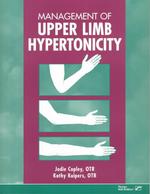- ホーム
- > 洋書
- > 英文書
- > Philosophy
基本説明
New in paperback. Hardcover was published in 2008. Challenges the current popularity of extended cognition theory through critical analysis and by pointing out fallacies and shortcoming in the literature.
Full Description
An alarming number of philosophers and cognitive scientists have argued that mind extends beyond the brain and body. This book evaluates these arguments and suggests that, typically, it does not.
A timely and relevant study that exposes the need to develop a more sophisticated theory of cognition, while pointing to a bold new direction in exploring the nature of cognition
Articulates and defends the "mark of the cognitive", a common sense theory used to distinguish between cognitive and non-cognitive processes
Challenges the current popularity of extended cognition theory through critical analysis and by pointing out fallacies and shortcoming in the literature
Stimulates discussions that will advance debate about the nature of cognition in the cognitive sciences
Contents
Preface vii
Acknowledgments xii
1 Introduction 1
2 Refining the Issues 16
2.1 What are the Boundaries? 16
2.2 What is Cognition? 22
2.3 The Possibility of Extended Cognition 25
2.4 Conclusion 29
3 Original Content 31
3.1 Part of the Mark of the Cognitive: Non-Derived Content 32
3.2 The Basics on Derived and Underived Content 35
3.3 Dennett's Critique of Original Content 39
3.4 Clark's Critique of Original Content 46
3.5 Anti-Representationalism in Dynamical Systems and Mobile Robotics 51
3.6 Conclusion 55
4 Cognitive Processes 57
4.1 Individuating Process Types in Science 58
4.2 Individuating Processes in Cognitive Psychology 60
4.3 A Broader Category of Cognition 70
4.4 Conclusion 74
5 The Mark of the Cognitive, Extended Cognition Style 76
5.1 Cognition as Information Processing, as Computation, and as Abiding in the Meaningful 76
5.2 Operationalism 79
5.3 Is This Merely a Terminological Issue? 83
5.4 Conclusion 85
6 The Coupling-Constitution Fallacy 88
6.1 Some Examples of the Coupling-Constitution Fallacy 93
6.2 Replies to the Coupling-Constitution Fallacy 99
6.3 Conclusion 105
7 Extended Cognitive Systems and Extended Cognitive Processes 106
7.1 Dynamical Systems Theory and Coupling 107
7.2 Haugeland's Theory of Systems and the Coupling of Components 112
7.3 Clark's Theories of Systems and Coupling 119
7.4 Conclusion 130
8 Cognitive Equivalence, Complementarity, and Evolution 133
8.1 Cognitive Equivalence 133
8.2 The Complementarity Argument 143
8.3 Evolutionary Arguments 147
8.4 Conclusion: The Importance of the Mark of the Cognitive 150
9 Inference to the Best Explanation and Extended Cognition 152
9.1 What is the Theory of Enactive Perception? 153
9.2 Noë's Evidence for Enactive Perception 156
9.3 The Case against Enactive Perception: Paralysis 166
9.4 Conclusion 172
10 Future Directions 174
Bibliography 180
Index 187







